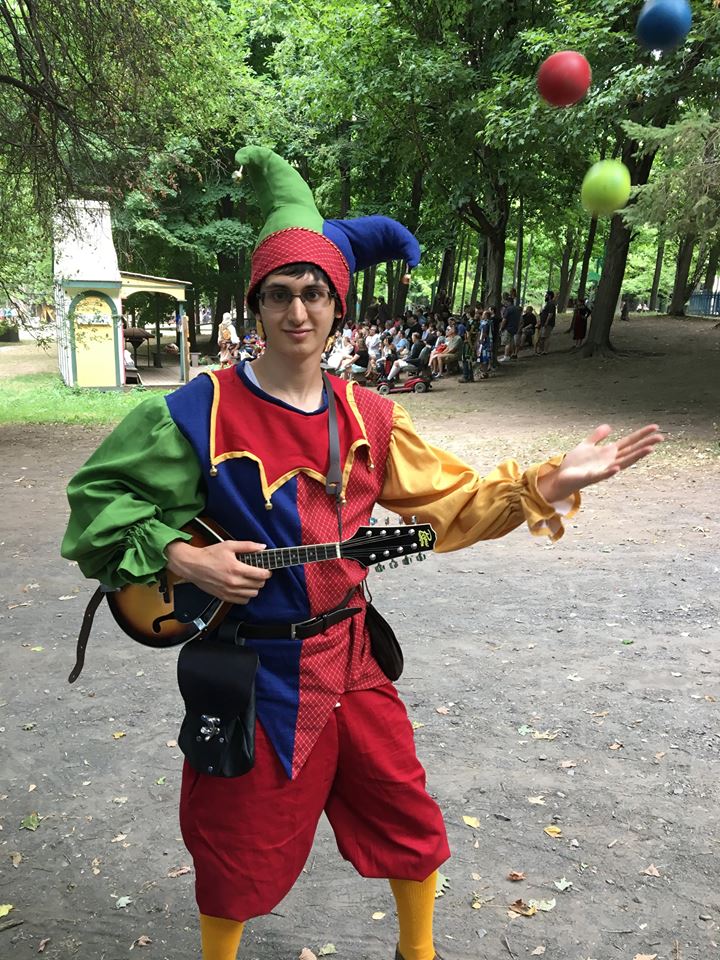About Me
I study and design games. My specializations are tutorials, player experiences, and transformational games.Currently, I'm a game designer for Star Trek Fleet Command at Scopely. As of Jan 2026 I've just started and have very little idea what exactly I'm doing!
Previously, I created unique experiences in World of Warcraft for Blizzard Entertainment as part of the Live Game team. Most famously, I was the feature owner of Legion Remix.
As a doctoral student, I studied game-user interaction and transformational games at Northeastern University, mentored by Seth Cooper and Magy Seif El-Nasr. My research focused on synthesizing game design principles with the psychology of learning and motivation to create seamless and engaging user experiences in non-game contexts. My primary specialization is in complex learning in games, with specific focus on higher educational games and transformational games which train soft skills, such as language, music, and art.

Hometown: Hamilton, New Jersey
Field of Study: Game user research, transformational games
Hobbies: Juggling, cooking, game development, playing games of all kinds
Favorite game genre: Lifestyle games
Games I'm playing currently: Star Trek Fleet Command, StarVaders, Elden Ring, Dyson Sphere Program, Wyldermyth, Hyper Light Drifter
Favorite games (in no particular order): Ocarina of Time, Overwatch, Don't Starve Together, Oxygen Not Included, ...
My Academic Story

I told my advisor about this interest in psychology and he corrected me: no, no, that’s neuroscience. I had never heard of neuroscience before, but I thought okay, I’ll major in that. And I’ll pick up some computer science while I’m at it. I was headed toward what I thought was “computational neuroscience” until I realized that’s actually a branch of physics --- neither neuroscience or computer science!
That’s when I enrolled in neuroanatomy, the hardest class I’ve ever taken. It wasn’t that the material was hard, I could memorize a few jargon words for brain areas and their functions. But the professor taught the course like medical school (his words), and apparently that meant learning through steady-paced lectures and reading article after article about various findings with little cohesive narrative. It probably didn’t help that I was taking four other classes at the same time.
Why was this so hard to remember? I thought. What’s twenty jargon words compared to the hundreds of facts I still remember from video games I played ten years ago? Why did it seem like I remembered my gaming experiences better than anything from this class?
That’s when I knew that my skills would not be best used going directly into the research I wanted to contribute. No, I had a knack for identifying inefficiencies in instruction, it turns out, and I needed to understand how I learn before I could tackle the actual learning. If I increase the rate at which humans learn, I thought, then I’ll be contributing more to human knowledge than if I directly work at it --- acceleration, not speed.
So I pivoted away from neuroscience into the psychology of learning and motivation. Turns out I really was after psychology all along.
Grad School and Beyond
That took me to Northeastern to study how games actually work, opening up whole new fields to me of game design, game development, and human-computer interaction. My interests started to include instructional design, game design, and the intersection between them. At first, I was still hooked on individual theories of learning and motivation, like Self-Determination Theory and Cognitive Load Theory. Realizing these theories are tools, not solutions, I moved to a more comprehensive tool: Four-Component Instructional Design. I started looking at the instructional design model as a whole, while also researching more on the industry principles and practices that make commercial games successful.Although my work has focused on citizen science games, they’re really only a subset of transformational games --- games that encourage transformative experiences: anything from learning a new skill to re-contextualizing one’s identity. Eventually I hope to apply this research to more practical transformational games: games that teach complex soft skills, like reading scientific articles, learning another language, playing music, or even understanding neuroanatomy. Maybe then I’ll finally get what that class was about.
In this “ludic century,” we need to understand how to use games as a tool for formal and informal learning. How do learning and play relate? What is the core experience of discovering new things? These are unanswered questions that will lead to new insights in education, motivation, playability, and playfulness. My work so far has straddled the line between industry and academia, between theory and practice, and I hope to continue that way: making games which advance the theory of designing good games, but are also transformational in their own right.
FAQ
How did you get into game design? Why AAA?
After my pivot into the psychology of learning and motivation (see My Academic Story above), I decided to explore why games are so motivating. I'm currently dipping into AAA to get industry experience, but eventually I want to be making experimental games that bridge the gap between entertainment and practical value -- games that are genuinely fun but also teach or transform.
What do you do for World of Warcraft? What is a content designer?
See https://www.pcgamer.com/games/world-of-warcraft/world-of-warcrafts-executive-producer-says-the-games-recent-maverick-events-like-plunderstorm-and-mop-remix-are-owed-to-a-squad-of-madcaps-called-the-live-team/
For more details on what I've worked on, check out my portfolio.